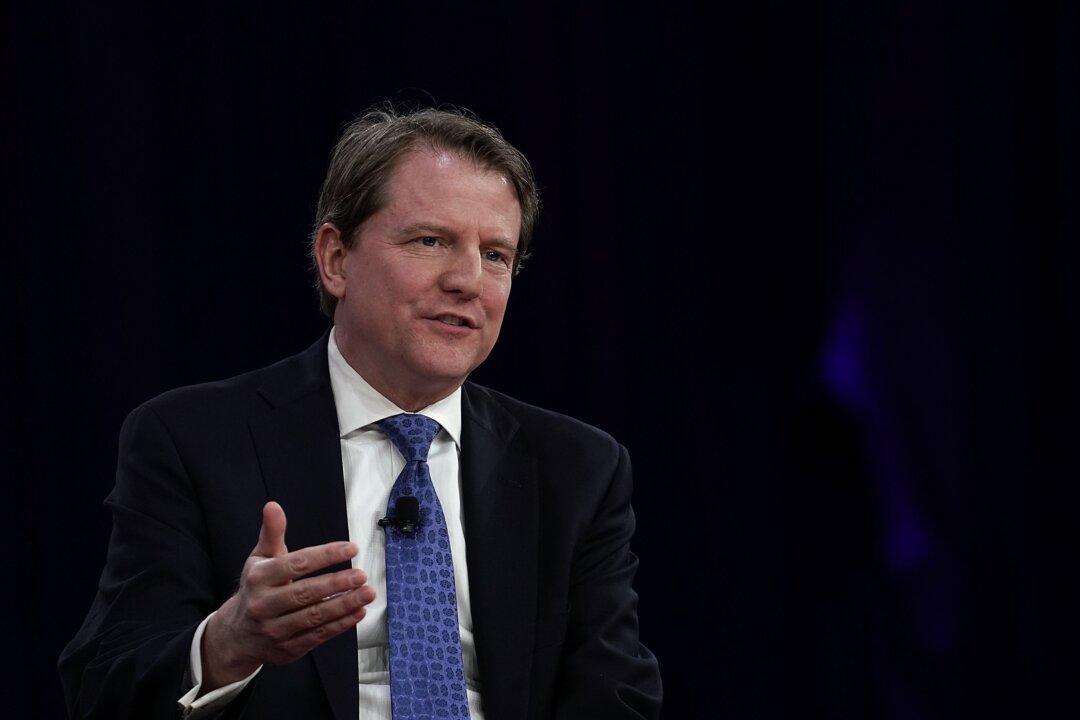A federal appeals court on Friday ruled that former White House counsel Donald McGahn doesn’t have to testify in the House Judiciary Committee, meaning he does not have to comply with a subpoena.
Three judges for the D.C. Circuit Court of Appeals ruled 2-1 to overturn an order that McGahn must comply with the Judiciary Committee’s subpoena, which was sent to him as part of the Democratic-led probe into whether President Donald Trump obstructed during then-special counsel Robert Mueller’s investigation into whether Russia interfered in the 2016 election.





